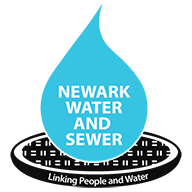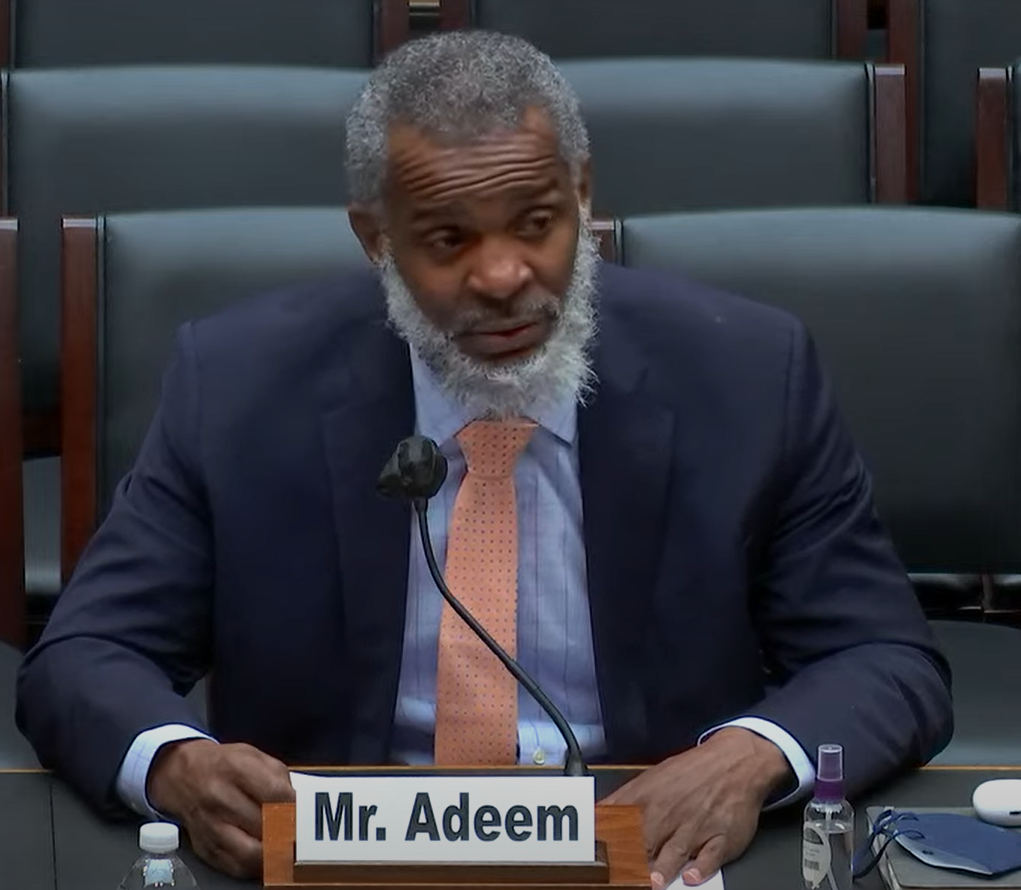Director Kareem Adeem’s Official Statement before the NJ Assembly Special Committee on Infrastructure and Natural Resources
Director Kareem Adeem testifying before the New Jersey Assembly Special Committee on Infrastructure & Natural Resources on Thursday, February 16th, 2023.
February 16, 2023
“Thank you, Assemblyman Karabinchak and Assemblyman James Kennedy for chairing this special committee and inviting me to participate. My name is Kareem Adeem and I am the Director of the Newark Department of Water & Sewer Utilities.”
“Some of the underground infrastructure that delivers drinking water, fire protection, drain stormwater and carries sewage in our state dates to the early 1800s. When I began working for the Newark Water Department in the 1990s, we witnessed the removal of wooden water mains, which pre-dated the Industrial Revolution.”
“In October 2022, a 100-year-old, massive 72-inch water main broke in Nutley (NJDWSC), causing flooding, road deterioration, and loss of water pressure in cities and towns in three counties and forcing Glen Ridge and Montclair to declare a state of emergency to restrict water usage.”
“Days later, a water main break occurred in Florham Park, flooded, and closed all four lanes of Columbia Turnpike, and put the Morristown area on a boil water alert.”
“These followed a main water failure in Branch Brook Park in August, where a 42-inch pipe cracked, causing a road washout and loss of water pressure in half of the city and neighboring towns. That pipe dates to the 1880s.”
“Around the same time, a sewer collapse in Jersey City under Route 440 created a traffic nightmare for two weeks. That sewer line, too, was over 100 years old.”
“The point here is that if you google New Jersey water main breaks, sewer collapses, or local flooding, you will find dozens of recent examples of how our aging infrastructure broke down last year.”
“As you know, the EPA has estimated that New Jersey will need $26 billion over the next two decades to maintain and improve our clean drinking water infrastructure.”
“Gov. Murphy and the New Jersey Legislature have allocated $250 million of our share of American Rescue Plan (ARP) funding for water infrastructure, with the majority of it being allocated to combined sewer projects. However, the state’s long-term control program will cost New Jersey over $3 billion, and seventy percent are in our overburdened and disadvantage communities.”
“Let me put those dollar amounts in perspective. In the nine years of Mayor Ras Baraka’s Administration, the City of Newark has spent $220 million in clean water delivery infrastructure and environmental technology, sewer line and storm drain improvements. This does not include our $190 million lead line replacement program. That’s $410 million invested in our infrastructure, and there is still work to be done.”
“This committee understands New Jersey’s infrastructure along the Passaic and Hackensack River basins must be significantly improved to make it less vulnerable to flooding. Loss of life and property damage in this corridor is astounding. This paragraph from an Army Corps of Engineers report tells the story.”
“The most severe flood, the ‘flood of record’, occurred in 1903; and more recent floods in 1968, 1971, 1972, 1973, two in 1975, 1984, 1992, 1999, 2005, 2007, 2010 and 2011 were sufficiently devastating to warrant Federal Disaster declarations.”
“Two of those floods each caused nearly $700 million in damages, and neither were labeled tropical storms or Nor’easters, just ‘rain events’. After Hurricane Sandy, the Passaic Valley Water Commission spent $600 million for flood resilience measures.”
“I have included all these examples and costs to illustrate the funding gaps and talk about the urgency to make massive investments in our infrastructure for the health and welfare of our residents.”
“Infrastructure investment has been a ‘can kicked down the road for too long’. No More Excuses!”
“President Biden’s Bipartisan Infrastructure Law and American Rescue Plan, and the Biden-Harris Lead Pipe and Paint Action Plan, are the country’s biggest infrastructure investment since President Eisenhower’s Federal Highway Act nearly 70 years ago.”
“Finally, as you know, the City of Newark recently completed a full replacement of over 23,000 lead service lines in less than three years in a program lauded by Vice-President Kamala Harris on several occasions as ‘the model’ for such projects. The New York Times also acknowledged us as “the model city” for lead-line replacement as did the National Resources Defense Council.”
“For the purposes of this hearing, I would like to share how we mobilized to complete this project and create jobs with economical use of our own funding. Now that federal Infrastructure Investment and Jobs Act funding are available, I think a blueprint of how we completed our program could be useful to other New Jersey communities.”
“Our project was unprecedented in terms of scope and speed and has protected the health and wellness of the residents of Newark as well as portions of neighboring cities that we service. It also provided 500 good-paying local jobs, through our affirmative action goals to establish fair access to employment designed to reflect the demographics of the City.”
“While maintenance and replacement of service lines that connect private property to city-owned water mains are usually the responsibility of the homeowners, our program was completed at no cost to the residents in capital outlay, taxes, or water rate hikes to our residents or customers in surrounding towns. This allowed us to make the program mandatory to ensure that everyone in our city had access to clean water.”
“What drove us was a vision to reject the status quo. We decided early on to get this done, without the usual excuses to delay infrastructure investment. We challenged ourselves to overcome obstacles and not let them get in the way of our vision. Our vision was simple: we were going to do something that had never been done, that is, create an unprecedented program and make Newark ‘the model city’ for solutions of this national crisis. We had the political will to get it done, and drew on federal, state, county, and local levels to succeed.”
“Our State Legislature has the power to make things happen. For our project, it passed a law to specifically allow the city to use public funds on private property for the expressed purpose of replacing lead service lines. This was essential to the project’s success. At the local level, Newark’s Municipal Council passed an ordinance that gave us the ‘right of entry’ to private property to replace lead lines.”
“This was critical because nearly 75 percent of Newark residents rent and tracking down property owners for access to their property would have been time-consuming and costly. Finally, Essex County Executive Joe DiVincenzo offered us a $120 million bond, so we could accelerate our program, which was also approved by the State.”
“I thank you for allowing me to participate in this hearing, and I will be happy to answer any questions.”

